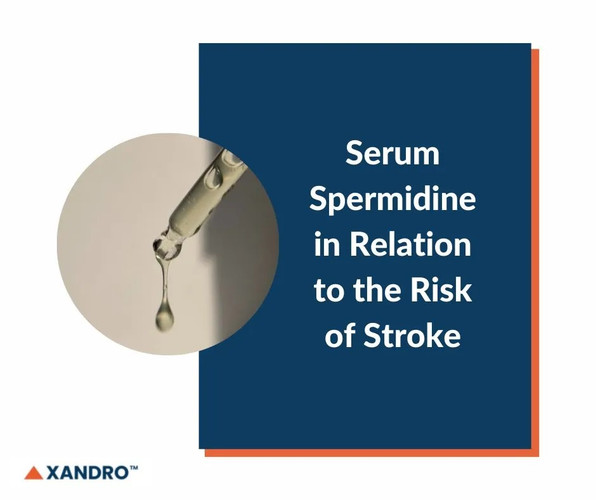Serum Spermidine & Stroke Risk: Studies, Findings and Implications
17th Oct 2023
.png?w=600&h=400)
Serum Spermidine in Relation to Risk of Stroke
By maintaining a balanced diet, you can maintain your high levels of spermidine, but dietary spermidine supplementation is also available.
Most studies on spermidine as a supplement focus on dietary spermidine, which has found a correlation with protection from cardiovascular disease, a delay in the progression of heart failure and reduced blood pressure. It also has been clinically proven to be a natural autophagy activator and has shown benefits for our brain, cognitive health and dementia, liver health, weight loss and as an immune system support. Spermidine, therefore, is needed in our bodies and is good for you.
In terms of serum spermidine though, in 2022, a spermidine research study found a consistent association between serum spermidine levels and the risk of stroke. It found that every 10 nmo/L increase in serum spermidine increased the risk of stroke by 11 per cent, partially due to the breakdown of the blood-bread barrier. While this was a strong finding, keep in mind that the cohort consisted only of adults from northeast rural China, where diversity may be limited, and did not factor in any other dietary spermidine intake. Further, studies are needed and diversity needs to be examined.
Serum spermidine has, however, been found to improve prognosis in people with acute myocardial infarction.
If interested in taking spermidine supplements, check out Xandro Lab’s scientifically-tested spermidine capsules here.
